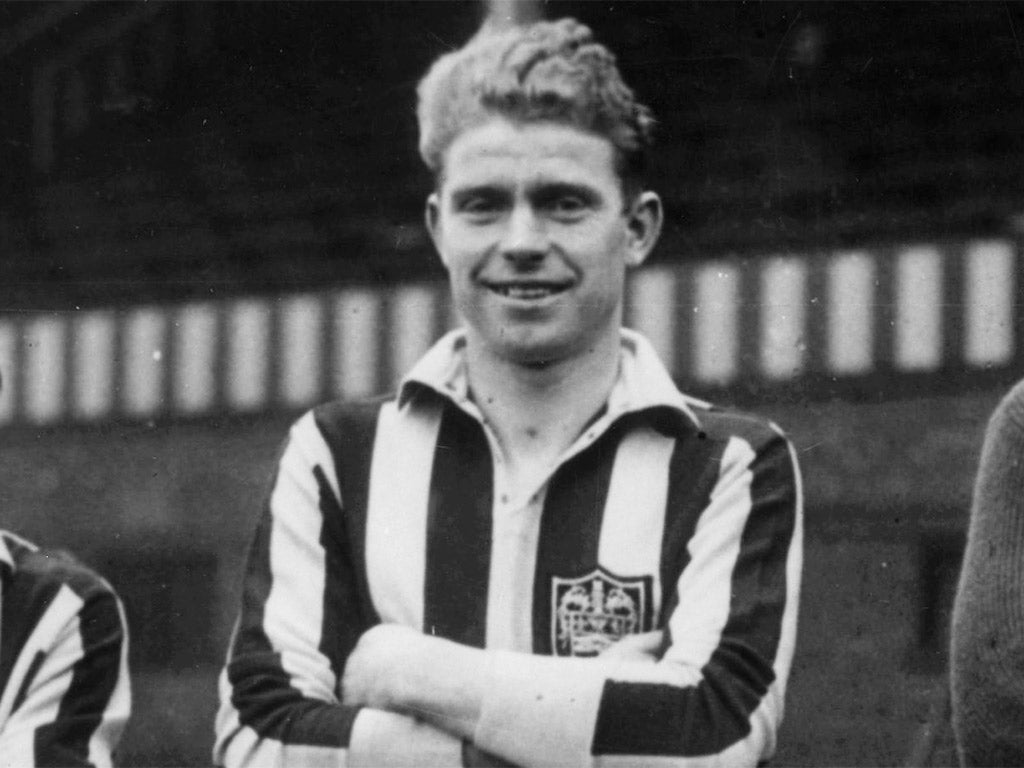When Manchester City played in Berlin and foiled the Nazi propaganda machine
English champions went to Germany in 1937 on a hot streak to take on Hitler’s ‘political soldiers’ and came back with heads held high – but not their arms

Your support helps us to tell the story
From reproductive rights to climate change to Big Tech, The Independent is on the ground when the story is developing. Whether it's investigating the financials of Elon Musk's pro-Trump PAC or producing our latest documentary, 'The A Word', which shines a light on the American women fighting for reproductive rights, we know how important it is to parse out the facts from the messaging.
At such a critical moment in US history, we need reporters on the ground. Your donation allows us to keep sending journalists to speak to both sides of the story.
The Independent is trusted by Americans across the entire political spectrum. And unlike many other quality news outlets, we choose not to lock Americans out of our reporting and analysis with paywalls. We believe quality journalism should be available to everyone, paid for by those who can afford it.
Your support makes all the difference.The only Manchester City player to comply with local wishes and do a Nazi salute on their tour of Germany in the summer of 1937 was Frank Swift, and that was as a joke.
City went to Germany after winning the 1936-37 Football League title, a tour that climaxed with a game against a German select team in front of 75,000 fans in Berlin’s Olympiastadion. It was a friendly but the symbolic stakes were high. The champions of England were playing in the stadium opened the previous summer for the Olympic Games which the Nazis had used to project their propaganda to the world.
“We were expected to give the Nazi salute at the line-up before the match started,” wrote Peter Doherty, City’s brilliant Irish striker, in his memoir Spotlight on Football. “But we had decided merely to stand to attention. When the German national anthem was played, only 11 arms went up instead of the expected 22!”
When the England team played in the venue almost exactly one year later, they politely complied.
Swift was the one City player who gave the salute in 1937, as they got off their coach before an earlier friendly. “Frank immediately gave a stiff and exaggerated Nazi salute,” Doherty recalled, “which delighted the Germans and made us rock with laughter.”
This was the story of ordinary footballers in an extraordinary position, playing celebratory friendlies which were a proxy for international pride. City’s pride was certainly high having gone unbeaten since Christmas – winning seven straight games in April – to pip Charlton Athletic and Arsenal to the title. Long before the creation of the European Cup, these tours were the peak of club football. Five days after their last league game, City were playing in Duisburg.
That opening game, played in front of 45,000 people, was a 0-0 draw, thanks to the heroics of Swift in the City goal. Then they drew 1-1 in Wuppertal and won 3-2 in Schweinfurt, fulfilling touring obligations along the way.
“On the days without games they typically spent the morning on official visits,” Gary James wrote in The Big Book of City. “Most afternoons, further ambassadorial-style visits would be organised. During the evenings there would be official engagements.”
City were not playing club sides but German select XIs in each town. “Each side the Blues faced included international players from all over Germany,” James writes. “The sides were of a greater quality than City had anticipated.”
Germany were busy preparing for the 1938 World Cup, and were desperate to prove their athletic might to the world. “National Socialism has restored the meaning of sport,” said Guido von Mengden of the German Football Federation. “Footballers are the political soldiers of the Führer.”
The 1936 Olympics was meant to be the ultimate display of this, but the Germany team coached by Dr Otto Nerz were surprisingly knocked out in the quarter-finals, beaten 2-0 by Norway in Berlin. When the second goal went in, Adolf Hitler stormed out of the ground. After that humiliation, Nerz started to hand the side over to Sepp Herberger.
The national team improved under Herberger, leading to a famous 8-0 win over Denmark at the Hermann Göring Sportfeld in Breslau, now Wroclaw in Poland. That team is known to history as the Breslau-Elf, and City were there to watch it three days before the big game in Berlin. “The Germans won very easily,” Doherty remembered. “We were guests at an elaborate banquet after the game, and everyone treated us with the utmost kindness.”
But when City arrived in Berlin it was clear how much the game mattered. Otto Siffling, who scored five in Breslau, was starting for Germany. Reuters and the Manchester Guardian sent reporters, British Movietone sent a camera. “The whole place was peppered with armed Nazi guards,” Doherty wrote, “and getting past them to reach the dressing rooms was an ordeal.” Before kick-off, before the salute, City were presented with two Nazi pennants.
Germany took the lead but City fought back and went 2-1 up. The Manchester Guardian report praised Eric Brook’s “splendid game, roving all over the field,” and Swift’s “sure and capable hands”. But City were eventually overwhelmed and lost 3-2. That was also the score for City’s final game in Stuttgart, but they felt they could return to Britain with their heads held high.
“Though Manchester City have lost their unbeaten record on the Continent, the supporters of the champions have no need to spend any sleepless nights worrying about the defeat in Berlin,” wrote the Manchester Evening Chronicle. “No doubt Manchester fans hoped to see City return undefeated, but no disgrace was attached to such a narrow reverse.”